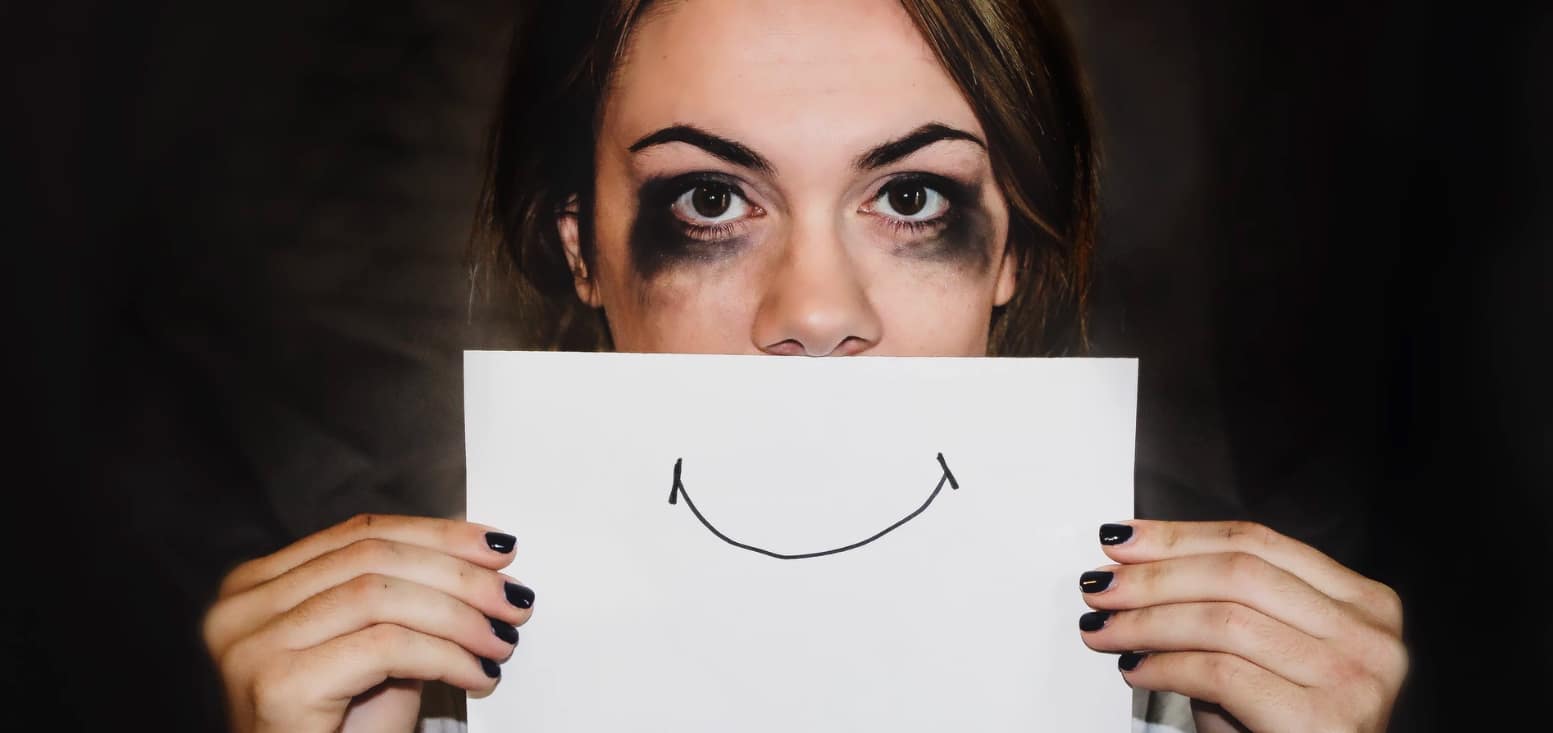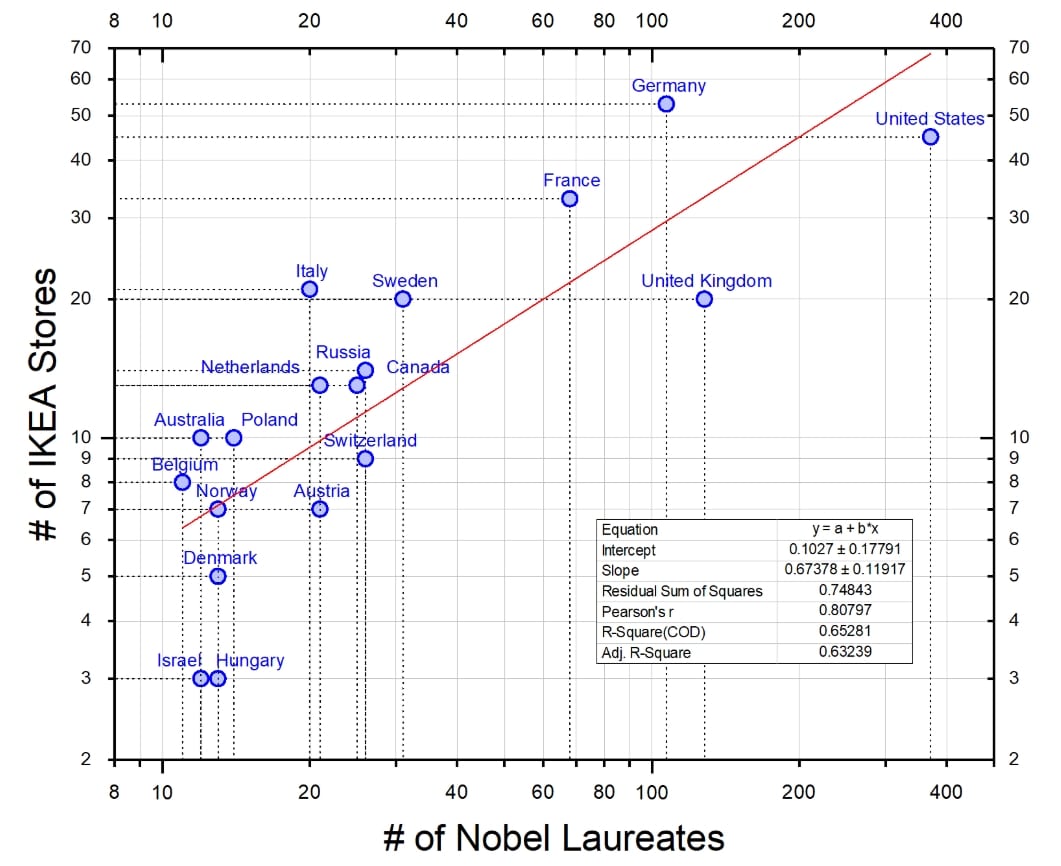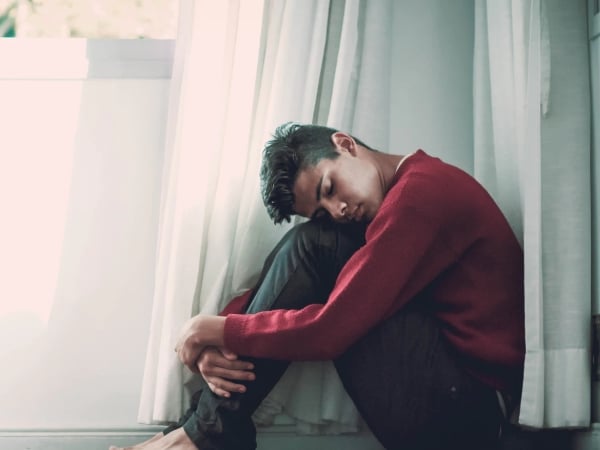Are you ever anxious right after feeling very happy? Or do you feel like happiness actually triggers anxiety? I have felt the same way on multiple occasions, which is what initiated me to do some extensive research on the topic. I’ve scoured the web and analyzed over 5 years of my personal happiness journal in order to answer this question.
So can happiness cause anxiety? After researching the topic, I’ve found that happiness doesn’t trigger anxiety, but it can cause the mind to think about things that may cause anxiety indirectly. Therefore, you might personally find a strong correlation between feeling happy and feeling anxious. However, that doesn’t mean one actually causes the other.
This article covers multiple ways in which happiness and anxiety can be correlated. I’ve searched the web for multiple examples and include a personal example as well. I hope this article helps you understand why you might experience anxiety right after feeling happy.
Contents
Actual examples of how happiness and anxiety can work together
I’m going to show you some examples of real-life scenarios that I’ve found about how happiness and anxiety are correlated. You might personally recognize one of these examples or not.
Either way, these examples will help you understand the question of this complicated topic.

“I’m so used to feeling anxious that feeling happy makes me uncomfortable”
This is a very interesting example that I found on Reddit. It’s about someone posting this statement:
“I’ve been so used to feeling depressed that being happy for long periods of time makes me uncomfortable.”
I’ve personally never felt this way (thankfully) but can understand how people that are fighting anxiety and depression might be dealing with this issue.
The thing is, feeling anxious is something that a lot of organisms do. Anxiety is not just limited to humans. You might know of a dog that starts acting anxious right before a big thunderstorm.
This anxious state is a product of evolution: it increases our vigilance and preparedness for a shitstorm (pardon my French).
The same goes for humans. In a way, your anxiety means your only protecting yourself from anticipated unhappiness. So why does it feel like anxiety is sometimes triggered by happiness?
It’s because the moment you are relaxed and happy, you can start to feel vulnerable. You may get the feeling like you’re letting your guard down. By feeling happy and worry-free, you might fool yourself into thinking that you’re letting your guard down.
What’s evolution’s solution?
You start experiencing anxiety in order to bolster your defenses again.
You might not relate to this example, but some people have suffered from anxiety long enough to start feeling this way. In some cases, it can become very severe. For example, some people feel like a happy feeling is only fooling them.
These people might be thinking:
- “Why am I happy when I know that I’ll eventually be unhappy and anxious again?”
- “Why am I falling for this again?”
- “If I’m sad, I at least can’t be hurt.”
- “If I beat myself up, then no one else can humiliate me.”
A natural reaction to these thoughts can be to just skip the feeling of happiness altogether. You’re going to feel anxious and unhappy in the end anyway, so why fool yourself into thinking you can feel happy now?
One of the replies to this Reddit thread came from a Redditor called u/reallybigleg. It was so painfully honest and well-written, that I asked the author for her permission to share it with you here:
The reason it’s so difficult to change self-critical, anxious or depressive thoughts is that at some level they help us feel safe.
Not that they can’t be changed. But I just think that’s a good way of looking at it. It helps you make friends with the depression/anxiety if you can see that it’s really just there to help you. It’s fucking terrible at it, it makes everything worse, but it’s trying. That way you can say to it: “Hey, I see what you’re doing there. Thanks for trying to protect me. But I think we need to let go of that and try something new.”
My own example with anxiety and happiness
I sometimes feel guilty for being happy.
As stupid as that sounds, I’ve come to learn that more people are dealing with this. How does this work? Well, I’ve scoured my own personal happiness journal (that I’ve been keeping for well over 5 years now) for an actual example.
Here is a journal entry that I wrote on the 13th of September 2017. At the time, I was on a road trip through Norway with my girlfriend. We would drive my parents’ car all the way up to Norway, and my parents would then fly there and drive it back home to the Netherlands. On this day, my girlfriend experienced a fantastic day, hiking to Trolltunga in beautiful weather. This is a little bit of context that you need before reading this part of my journal.
I’ll skip right to the relevant part of my happiness journal entry:
I feel guilty now. Guilty towards my parents, that I’m able to experience such an amazing day. We had such good weather and are so lucky to be able to do this hike. I know this feeling is completely irrational, but I still feel anxious, guilty and worried.
Worried about what if my parents don’t get good weather during their way back to the Netherlands? What if they’re not able to make it up to Trolltunga? By the time they’re here, they might not even be allowed to do the hike anymore… I just hope that they’re going to have an equally good holiday as well. I can’t help but feel anxious and worried about it.
What am I going on about here?
I’ve just had one of the most awesome days of the month, with one of the most breathtaking experiences of my life. For some added context, this is me sitting on the edge of Trolltunga:

But despite this amazing reason to be happy, I still felt anxious. And I couldn’t help it.
I felt guilty for experiencing this happiness, while constantly thinking about how others deserve the same kind of happiness just as much.
Why do I deserve this happiness?
This thought was constantly running through my head. Can you relate to this feeling? You may think that this is just a stupid and silly example, but it’s another way in which anxiety and happiness can overlap with each other.
The impact of imposter syndrome on our happiness
Have you ever felt like you didn’t deserve the things you had or the things that were happening to you?
Got a promotion at work? Are you on a great date with your partner? Are you laughing and enjoying a drink with your friend? If you’re suffering from imposter syndrome, then it’s likely that you’ve felt like you didn’t deserve these good things.
Imposter syndrome can also affect our happiness this way, just like it did for me on my road trip through Norway?
Why do I deserve to be happy more than others?
If you look hard enough, you can almost always find unhappiness in this world. It’s because happiness and sadness co-exist. For many people – including me – this feeling of imposter syndrome can result in anxiety. And that’s yet another example of how happiness and anxiety might sometimes feel like they are correlated.
Correlation does not equal causation
Despite all these previous examples, it’s important to know that happiness is likely not the direct trigger for your anxiety. To fully understand this, you should be aware of the concept of correlation vs. causation.
Smoking cigarattes causes lung cancer
This is an example of causation since smoking cigarettes can directly result in lung cancer. The cause and effect are directly connected to each other.
Here’s another one:
Countries with a higher number of IKEA stores generally have a higher number of Nobel Laureates.
This is an example of correlation. Here’s the source for this wonky example. For some reason, the number of IKEA stores is correlated to the number of Nobel Laureates of a country. This does not mean that a country can expect to see any Nobel Laureates when they get IKEA to build more stores. No way, because the two variables are not directly caused by one or the other.

Correlation is not equal to causation: Nobel prize winners vs. IKEA stores
Silly example, right?
But the same goes for happiness and anxiety.
I believe that happiness and anxiety can be correlated to each other, as seen with the previous examples. But this doesn’t mean happiness actually causes anxiety. We only experience a scenario in which happy feelings start a chain reaction of emotions that eventually triggers a feeling of anxiety. Are the two correlated? Possibly? But that doesn’t mean you can never be happy without feeling anxious.
Anxiety and happiness are not opposites
Anxiety and happiness are not directly caused by one another partially because these are not strictly opposites. You can hypothetically be both happy and anxious at the same time. If you’re experiencing anxiety at this very moment, then that’s not necessarily because you are equally as unhappy.
Anxiety and happiness “move” in a way that’s independent of another.
I want you to know that you can feel happy without having to worry about future feelings of anxiety. As explained before, worrying about your future anxiety is likely a defense mechanism that only starts a self-fulfilling prophecy:
- You’re tempted to worry about anxiety after feeling happy
- You’re in a situation where you are feeling happy for a moment
- You’re “defense mechanism” kicks in
- You start to experience anxiety, which affects your happiness
- Repeat
If you recognize this pattern in your own life right now, you must know that you are not alone. Try to be aware of it the next time you start feeling anxious after being happy, so you can consciously try to stop this cycle. Because no matter how you might feel, everybody deserves to be happy.
Including you.
Do you deserve to be happy?
Every single emotion that goes through your mind when feeling anxiety will tell you differently, but you deserve to be happy. Try to fight these emotions with pure facts:
Q: Why should you deserve to be happy?
A: Because happiness is the most beautiful thing in life. Everybody encounters sadness once in a while because that’s part of life as well. Know that happiness and sadness co-exist and are constantly moving up and down like a tide. Everybody will experience unhappy periods in a while. Don’t let that stop you from being happy right now.
Q: Why do I feel guilty for being happy?
A: Because you’re comparing yourself to others. You might feel unworthy of your current happiness because you think that others deserve it more. This is totally irrational. Comparing yourself to others should never affect your happiness. Comparison is the thief of joy.
Q: Why should I try to be happy if I know that it will all come crashing down eventually anyway?
A: Because happiness and sadness co-exist. Every life is made up of a hypothetical pile of good things and bad things. The good things don’t always soften the bad things, which sucks. But don’t allow the bad things to always spoil the good things and make them unimportant. Your current happiness should not be influenced by your potential future sadness.
Tracking my happiness
I want to mention here that I’ve been tracking my happiness for over 5 years now. What does this mean? It means I spend 2 minutes every day reflecting on my day:
- How happy was I on a scale from 1 to 10?
- What factors had a significant effect on my rating?
- I clear my head by jotting down all my thoughts in my happiness journal.
This allows me to constantly learn from my evolving life. It’s how I purposefully steer my life in the best direction possible. And I believe you can do the same.
💡 By the way: If you want to start feeling better and more productive, I’ve condensed the information of 100’s of our articles into a 10-step mental health cheat sheet here. 👇
This Cheat Sheet Will Help You Be Happier and More Productive
Thrive under stress and crush your goals with these 10 unique tips for your mental health.
Closing words
If you can relate to the examples in this article, I hope you’re now able to better understand where your feelings of anxiety are coming from. Maybe you already knew that happiness is not a direct cause for your anxiety, but I’m still hoping these actual examples can help you place things into perspective. Experiencing a strong sense of anxiety shortly after feeling happy is not weird. It can be explained by a lot of different things.
If you’re aware of these things, you are better equipped to deal with your anxiety in a way that results in a happier outcome.
Do you feel like sharing your own example of anxiety and happiness? I would love to hear from you in the comments below! 🙂



Awesome article especially when you tell about countries about IKEA stores & nobel prize winners, really relatable.
The question is, how to remove happiness anxiety, of course the first step is being aware & write down, asking yourself the question why. But is that it? Or by the time we write it it will decrease the intensity of anxiety? I’m really curious to know.
Anyway, great article. Cheers!
Thank you for this. I recently have become obsessed with the idea that because I‘ve been so healthy and happy (after being plagued with chronic pain and illness for years), surely that will be taken away from me as a punishment for not being a good-enough person. My health anxiety came back and I started thinking of my risk factors for everything, instead of just enjoying these beautiful days. I’m a work in progress. I’m glad someone understands this thought process.
Thanks for sharing your experience KC! I understand where you’re coming from. It’s like we feel guilty for feeling happy? As if we don’t deserve the good that’s around us. Well, it turns out everyone deserves to be happy. Being happy is a great way to share happiness with others as well. If there’s no real reason for unhappiness, just focus on the beautiful days and happy moments. 🙂